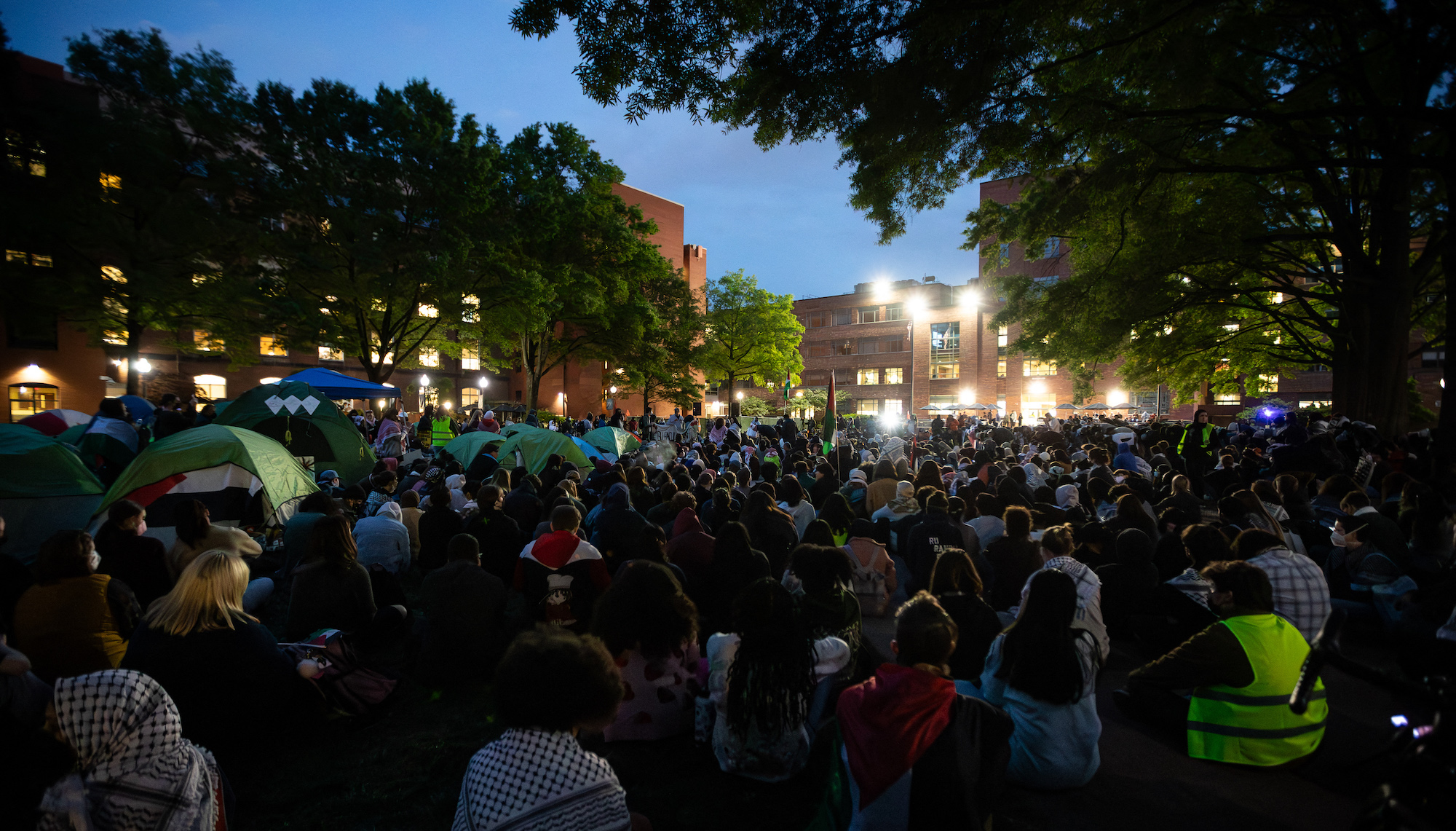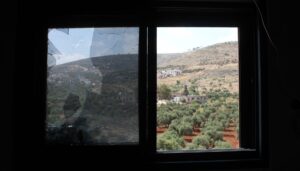Story by Ramsey Tesdell
Jazz music is about as American as Apple Pie. Starting with African-American communities who faced daily oppression and discrimination, jazz and blues music provided an outlet and a way to express the story of an oppressed community.
Similarly, in the Arab world, music plays an important role in resistance, culture, nationalism, and identity.
So what happens when you bring four jazz musicians from the center of the jazz world, New York City, and drop them in the heart of the Middle East. A few nights ago, The Chris Byars Jazz Quartet held a jam session at Jodango, formerly Library de Paris in Jebel al-Weibdeh, with local musicians. In the smoke-filled room, the sounds of American jazz music filtered out of windows and filled the narrow roads of Jebel al-Weibdeh.
Local musicians seemed to come out of the wood work for the event. They included Rula Jaradat on the qanoon, Arek Hairabedizn on drums, Shadi Khreis on percussion, Omar Faqir on piano, Basel Na’ouri, trumpet, and Yacoub Abu Ghoush on bass.
As much as a gift to Jordan, Chris Byars said that he regarded it a gift to have the opportunity to play with instruments that he never gets to play with in New York, such as the qanoon and the tabla. “I have more fun than anyone else.”
The Chris Byars quartet, based in New York have been touring the region as apart of the US State department’s cultural program, with this particular instance inspired by 60 years of relations between Jordan and the United States. Spend any amount of time with these four guys and several things become very clear very quickly. First it is easy to see their love of music. From jamming with Jordanian artists, hearing their extensive knowledge of jazz, or watching an impromptu performance in their hotel lobby, it is clearly apparent that they have a deep sense of appreciation for the music.
But it isn’t just about the music, said Ari Roland. “Blues and jazz are a tool for people and communities to express their problems and challenges. This music comes from a rich tradition of being passed down from old to young. The young then breathe new life into the tradition and enrich the experience.”
Respecting and honoring the tradition also came in the form of breathing new life into one of jazz music’s best. While leaving an important mark on jazz, his name isn’t as common as other jazz greats. George General Grice, Jr., known as GiGi Gryce had an enormous influence on jazz, yet it wasn’t until the book Rat Race Blues, a book about GiGi’s life came out did his name get some of the attention it deserved.
The Chris Byars Quartet played at the book opening, and from learning his music and performing it in front of crowds, it was the quartet’s own effort to respect the tradition of GiGi, and explore some of his music that wasn’t very well known, even within jazz circles.
In the mid-1950s GiGi converted to Islam and began importing some of the sounds from Islamic culture into his compositions. Regarding the role of Islam in the development of jazz music, Roland said that during that 40s and 50s, when jazz was really taking off, there were also a lot of African Americans converting to Islam. “Islam is important to jazz. So many of our mentors were Muslim. I learned how to say ‘salam wa alekoum’ very early in life.”
When asked how they would respond, if they were Jordanian, to a group from the US coming to play jazz music, Stephen Schatz, said that he hoped that Jordanians would see a “multidimensional aspect of American culture.” John Mosca echoed that sentiment by saying “the essence of American cultures is not just MTV and movies. Jazz music and other fine arts are also important parts of American culture.”
Stephen and Ari suggested that the level of talent, from what they have observed is very high. Their suggestion is that “music has to come first. You have to focus on playing,” said Stephen.
“Immerse yourself and be optimistic. Good things are not lost. They are too strong and too powerful,” concluded Ari.










